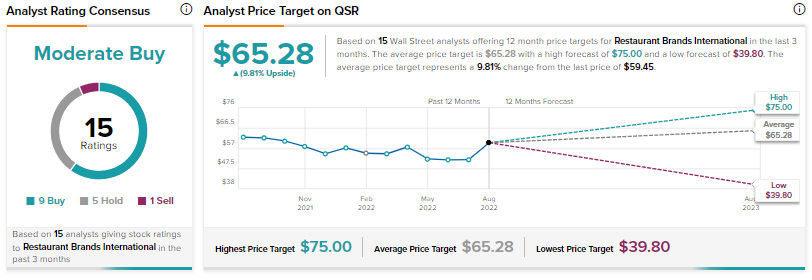Update: August 31
Restaurant operators are intensifying efforts against the Fast bill to have it vetoed by Governor Gavin Newsom, who has time until September 30 to do so. The bill could pave the way for similar actions in other places such as Illinois and New York. Additionally, the possibility remains that the purview of the council that will set wages could be expanded to other industries in California as well.
Elevate Your Investing Strategy:
- Take advantage of TipRanks Premium at 50% off! Unlock powerful investing tools, advanced data, and expert analyst insights to help you invest with confidence.
While over 100 union members rallied in the state capitol on Monday, different stakeholders from McDonald’s have sent over 11,000 emails opposing the move to members of the Senate, the Wall Street Journal reported.
California is moving towards a labor mechanism that empowers unions to have a say in wage and work conditions with a legislation called the Fast Food Accountability and Standards Recovery Act or Fast Act. Let’s see what this could mean for some of the biggest names in fast-food industry, such as McDonald’s (MCD) (GB:0R16) and Restaurant Brands International (QSR) (GB:0VFA), which have a substantial footprint in the state.
What is the Fast Bill?
According to the Wall Street Journal, the California Legislature passed a bill called the Fast Act, which would set up a government panel to set wages for about half a million fast food employees. Beginning in 2023, the panel would set hourly wages around $22 and can hike them each year in tandem with the consumer price index.
Further, under a previous iteration of the bill, restaurant chains could be liable for labor violations as they were made joint employers of the people employed by their franchisees. These provisions were stricken down last week but corporate opposition to the bill remains.
A significant hike in wages could also mean higher fast food prices and now the ball is in the court of Governor Gavin Newsom to either sign or veto the Fast Bill. While the bill would empower workers, investors could potentially see margin pressures on their favorite fast food stocks amid already high-cost pressures and supply chain challenges.
McDonald’s Opposes the Fast Bill
This month, workers in the restaurant chain protested in support of the Fast Bill outside a McDonald’s outlet in North Highlands, Sacramento. Two of the protesters had seen their work hours getting reduced at McDonald’s.
The protest was part of two days of marches and rallies in Sacramento. The Wall Street Journal added that efforts from companies, including McDonald’s, had successfully removed the provisions from the bill that could have made them potentially liable for labor violations. McDonald’s on its part has asked its franchises to write to California lawmakers to oppose the Fast Bill.
Moreover, the Wall Street Journal quoted Senator Shannon Grove, whom representatives of McDonald’s told that the company “could stop expanding in California or leave altogether” if the bill is passed into law.
The significance of this statement lies in the fact that out of the nearly 16,000 McDonald’s locations in the U.S., California has the highest at 1,492!
Is MCD Stock a Buy?
Wall Street, in the meantime, has a Strong Buy consensus rating on the stock alongside an average price target of $283.55.
Kalinowski Equity Research’s Mark Kalinowski has upgraded MCD stock to a Buy from Hold while maintaining a $320 price target. This implies a 25.17% potential upside in the stock.

Restaurant Brands International
QSR has leading brand names, such as Tim Hortons, Burger King, Popeyes, and Firehouse Subs, under its umbrella. QSR and other names in the restaurant industry have together spent over a million dollars between January 2021 and June this year on lobbying on the Fast Bill.
Last week, FOX Business quoted a Burger King franchise owner in California lamenting that the unit’s profits and margins are low, and “the biggest part” about the Fast Bill is the affordability.
QSR too has a significant presence in California with 555 Burger King locations, 246 Popeyes locations, and 48 Firehouse Subs locations. Consequently, a lot is riding on the Fast Bill for QSR as well.
Is QSR a Good Stock to Buy?
Argus Research’s John Staszak recently upgraded QSR to a Buy from a Hold with a price target of $67. Overall, the Street has a Moderate Buy consensus rating on QSR with an average price target of $65.28. This indicates a 9.81% potential upside in the stock.

What the Fast Bill Implies for All Stakeholders
The Fast Bill promises to get workers a seat at the high table but the industry is already suffering from labor shortages, cost challenges, and supply chain woes. Higher wages would aggravate the margin pressures on restaurant operators while also making consumers pay more for their favorite menus.
Read full Disclosure










